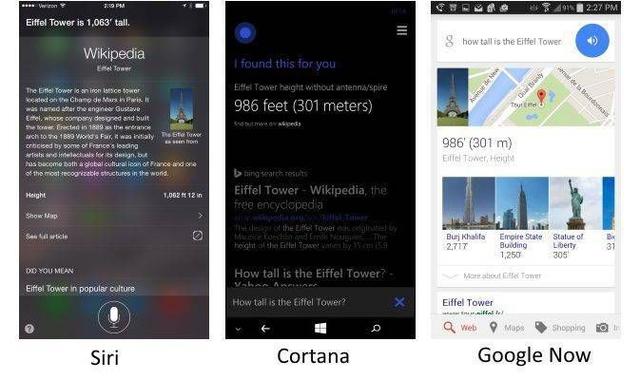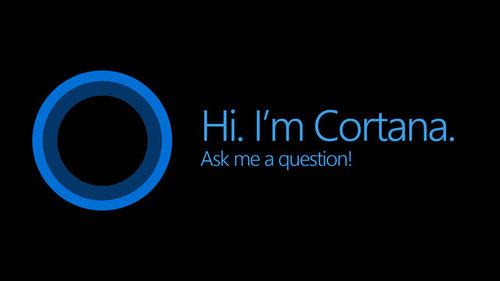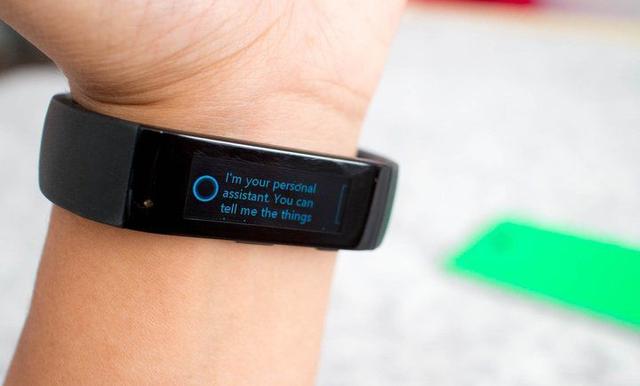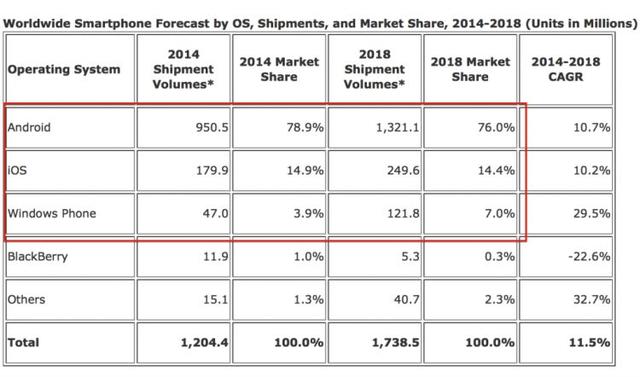Dismissed の Microsoft Xiaona’s life
Editor’s note: This article is from WeChat public account “ brain diode ” (ID: unity007), of: fox possession.
“hi Siri, tell me a joke” “Tmall Elf, what’s the weather today” “Small, navigate me to the nearest gas station”…
To wake up the smart assistant with voice today is no longer a shameful thing like it used to be.
The power of the “speaker war” has already made the group far away to the village and town AI, and the intelligent voice has already sunk so much that it can no longer sink. The habit of voice interaction is gradually cultivated, and the next step is to make a good story and tell the story.
In such a good situation, Microsoft voice assistant Cortana Xiaona has heard the news of “getting out of the group” and will terminate the service on the two mobile application platforms of IOS and Android. This is undoubtedly self-existing. The suicidal behavior of the people.
Xiao Na’s failure left a “heritage” in the field of voice interaction, and its creators will bid farewell to the key entry of intelligent voice assistant after losing the mobile terminal hegemony. Where?

Cortana Xiaona’s “Big and Miserable Life”
The mainstream people of today’s voice interactions may not have time to have a conversation with Xiaona on the mobile phone. Occasionally summoned on the PC side, the biggest possibility is also due to operational errors.
But this does not mean that this Cortana named after the AI character in the FPS game Halo, the level is really so stunned.
Accurately, in AI BlackIn terms of technology, Microsoft did not lose to the high-light labs such as Google and Apple. The Microsoft Research Institute (Artificial Intelligence – Speech Recognition) behind Xiaona is the “Whampoa Military Academy” in the industry. Xiaona, who has such a background, is much smarter when she comes out than Siri who is not asked.
In one video, the user asked Google Now, Xiaona, and Siri through the search engine “How high is the Eiffel Tower? Xiaona combined the knowledge map with AI a few years ago to present the answer, jump A lot of useless information captured by the engine directly tells the other party the answer – the height of the tower.

More importantly, Microsoft Research Asia, which Xiaona relies on, has a large amount of Chinese speech recognition and semantic analysis. At that time, Siri was still a Chinese who couldn’t understand and answered the most. The biggest role was to tell jokes. Funny player.
In addition to historical precipitation, Xiaona’s intelligence is also due to its key position in Microsoft’s core strategy of “cloud first, mobile first”.
At the time, Xiaona and Bing, Azure and other products were gradually replacing Office and Windows, becoming the core of Microsoft’s new business in the mobile era. To this end, Microsoft is also very careful in the polishing of Xiaona.
Xiao Na’s positioning is “Assistant”, which can handle complex oral instructions at the time to help users open third-party applications, find files, send and receive emails, and more. In 2016, Xiaona’s speech recognition rate has surpassed humanity. Earlier in 2018, in order to make Xiaona’s expression more humane, Microsoft also acquired an artificial intelligence startup called “Semantic Machine.” It can be said that it is definitely a biological treatment.

The ideals that Xiaona has shouldered, even today, are extremely forward-looking.
In the technical vision, Xiaona is designed to be cloud-driven. Many intelligent computing is done in the cloud, and device terminals only do lightweight integration. This makes it possible to cross-platform unified services.
So in the application scenario, Microsoft engineers put forward the idea of ”Cortana Everywhere”. That is, Xiaona can be called on various terminal devices of different configurations, different versions and different operating systems, and provide a consistent user experience. As long as the smart terminal has a certain computing power, you can run Xiaona’s client stack (Client Stack).
The smallest device that was envisioned at the time to run Xiaona was a smart bracelet. On Microsoft’s Microsoft Band, Xiaona could recognize the voice and present it in text form.
When the product owner at the time talked about Xiaona’s idealized future, she depicted a scene in which “a microphone is built into a piece of clothing, which can hear me and convey information to my cell phone in my pocket. Then the mobile phone communicates with the cloud. During the whole process, the user does not need to pull out the mobile phone from the pocket, and the headset can hear Xiaona’s reply.”
The ear is not familiar? Cloud + AI + Pan Terminal, the intelligent interactive picture that is commonly found in the PPT of the frontier technology summits of various industries, was drawn by Microsoft a few years ago.

(Little Na on Microsoft Band)
It’s a pity that there is always everything.
Xiao Na finally embarked on the road of “beauty and misery”. The last singularly miserable word is due to its complete failure not long ago.
Microsoft officially announced the strategic contraction of Xiaona, which will exit the iOS and Android platforms on January 31, 2020. This is an official death sentence.
In fact, as early as January of this year, Microsoft CEO Nadella announced that he would no longer regard Cortana as a competitor to Alexa and Google Assistant. But the step of completely abandoning the mobile application market is not embarrassing. Xiaona clearly should be the protagonist’s script, but eventually it has become a cannon fodder. How did everything happen?
Threesome must have cannon fodder: Microsoft’s voice interaction “Waterloo”
Despite the suspicion of a bit of a gun, today we look back at Microsoft’s big defeat in the voice consumer market, and perhaps a clearer for the players who are still on the scene.Clear understanding.
Overall, Xiaona’s “untimely” is mainly reflected in three nodes:
-
1. Born in intelligence, but stuck in the terminal.
The first essential point of the intelligent voice assistant is that in addition to being technically capable of achieving high-precision recognition and understanding, the core point is to have task attributes that can help people solve specific needs. It also means that it must be able to gain control of other devices and applications to meet this requirement.
But Xiaona has enough permissions in the Microsoft system, such as calling and understanding emails, handling 365office, and so on. And most of it happens in the PC environment, the voice interaction is second to the mouse. In the broader mobile scene, limited by the poor market share of Windows Phone, Xiaona is difficult to integrate seamlessly with her own hardware like Siri, echo and google assistant.
For example, when you open the app, use the “Hey Cortana” voice to wake up; or keep the voice on standby, run at low power consumption, etc. These necessary capabilities are difficult to implement on competitors’ devices.
With the lack of data nourishment from end-user behavior, Xiaona has gradually opened up gaps with her opponents in terms of her brain evolution and content understanding. Microsoft’s failure in consumer-grade mobile terminals eventually turned into Xiaona’s defeat.

2. It is a voice, but it is difficult to apply.
Although Microsoft started the application of Xiaona, it designed a very concrete application scenario. For example, users can communicate with Xiaona by inputting text or voice, and can search for Internet content by voice, or directly ask about TV dramas and weather. , nearby businesses, transportation routes, flights, music, encyclopedia and other information. After binding with the Microsoft account, Xiaona can also synchronize personal information such as emails, to-dos, and text messages between different platforms.
Reviewing the overall environment when Xiaona was launched, not only for the user, voice interaction is a bit embarrassing, and often needs to be the same as the Chinese New Year and the unfamiliar relatives, who need to search for the topic; even today It is not uncommon to talk to the voice assistant in the speaker for a few words.
The more sad reminder is that when Xiaona appeared, the terminal computing power did not yet exist.Now that GPU\CPU is powerful, the mobile network service is not as fast, popular, and stable as it is now. At the time, if the network situation was not good, Xiaona’s voice recognition was very slow, and in some cases it could not even be used.
The discomfort of today’s users using voice dialogue to issue instructions is almost eliminated, but Xiaona is already in the forest law of strong enemies, and it is difficult to turn over.
-
3. Born in intelligence, but trapped in self-styled.
Today, manufacturers who have intelligent voice assistants have already reached a consensus that both the accumulation of behavioral data and the cultivation of interactive habits require as much contact as possible with users. Openness and cooperation are the premise of everything. The hegemonic thinking of Microsoft’s retreat in the city may be the footnote of Xiaona’s destiny.
In 2014, the “Amazon Alexa+echo” model, which was widely hailed by today’s smart assistants, was just an experimental prototype. In order to make anyone want to use it, Amazon set up a new department, Alexa Voice Services, and opened up a greeting to everyone to open up the software and hardware that can be exchanged with Alexa, chandeliers, refrigerators, gas stoves, cars… many still look very good today. Stupid, but today Alexa is the most widely used voice assistant in the world, with more than 15,000 skills, which is not unrelated to this open form.
Also in the same year, when the Microsoft Windows Phone project executive Marcus Ash was asked by the media whether Xiaona would land on other application platforms, he said, “Microsoft will only be able to mature after the Windows Phone version of Cortana. Other platforms may be considered, and the underlying access capabilities for deep integration of iOS and Android will not be considered.”
Until 2015, the WP system saw a bleak market and could not provide a competitive development space for Xiaona, when Microsoft announced that it would switch to Android and IOS. Even such a platform is very limited, because it is a “special offer for China and the United States”, which only served the Chinese and American markets.
In the same year, Baidu has held a “secret” conference, which will be built into a set of Microsoft Xiaobing (chat bot) + Microsoft Xiaona (voice assistant) + bing Bing (search engine) + Voice interactive products of the vertical class O2O. Subsequently, the “small” ability was opened to the many hardware and software openers along with the DuerOS platform.
For the open-minded “arrogance and prejudice”, Xiaona missed the opportunity to grow roots and continue to evolve into the consumer layer.
In 2018, Microsoft also tried to continue to increase the focus of Xiaona on Android and IOS, and made a large-scale improvement, including updated UI, support for playing music on Bluetooth, and the startup speed increased by 20%. And deeper integration with other Microsoft services, such as joining a Skype conference.
Despite this, whether it is facing Chinese voice assistants such as BAT in the Chinese market, or confronting Google, Amazon and Apple in overseas markets, Microsoft Xiaona is both hardware-based and platform-oriented. The ability to stretch can no longer turn against the wind.
Interoperability between Cortana and Alexa in Microsoft’s Build 2018Sexual display, Microsoft also had to admit that Xiaona’s own functions are not enough to meet the demands of current users for voice assistants. In January of the following year, the smart speaker program centered on Xiaona was terminated.
Even today’s exits are less tragic in the face of bleak results. According to the latest data from Sensor Tower, the Cortana app ranks only 254 in the “Productivity” category on the App Store and only 145th in Google Play. It seems that there is no big loss in the exit.
Xona had the most eye-catching opening, but she was on the footsteps of Microsoft in the footsteps of Microsoft, which is sticking to Windows and Office.
Xona is gone, where is the future of Microsoft’s voice interaction?
Although Xiaona can be said to have disappeared from the mobile side, the future entrance of voice interaction cannot be abandoned.
The information disclosed from Microsoft We know that Xiaona will also exist as the only voice assistant tool for Microsoft. It will be embedded in all Microsoft Windows products, including the Xbox game platform.
It is not known whether Xiaona still hopes to return to the public’s field of vision, but it is not difficult to see from Microsoft’s “Waterloo” that voice as an interactive revolution triggered by AI, the focus of the game is often outside the technology.
After the warm-up of the “Thousand Box Wars”, the voice interactive battle of the pan-intelligent terminal has just begun, and all future machines and intelligent hardware, such as cars, homes, and offices, may be swept by this wave. In this process, the winner’s success may not be replicated, but the loser’s lesson is worth repeating.
Voice interaction giants as a reconstruction of the information ecology and lifestyle, involves a very complex social chain, such as Microsoft is inevitably step by step. At present, it can be confirmed that the establishment of the upstream and downstream cooperation ecosystem of the industrial chain will be the first.
The breakthrough of the underlying technology of voice has approached the ceiling. Everyone is repeatedly playing a decimal point on the extreme score of more than 90%. Through the help of industry partners, the upstream and downstream industry chain relationship of voice interaction software and hardware is opened, and the 5G+AIoT is popular. The smart terminal ecosystem occupies a pre-emptive position and is of great significance for future market dominance competition.
Secondly, the international competition is becoming increasingly fierce, and the local product advantages of Chinese manufacturers will continue to increase. Data from Google Assistant shows that more than 70% of Internet requests have been made in natural language and in conversation. Among them, various technology vendors, including entrepreneurs, have their own advantages, but in the end, user experience is the highest law to seize the market.
In this respect, Chinese technology manufacturers who can first complete the use of the sinking market to harvest, to complete the mental occupation in close proximity to the most user groups, is the first to finish in the “voice + everything” game. Ready to work.
It can be expected that in addition to constantly making new articles on the shape of smart speakers, the future Chinese voice interactive battlefield will have new hardware forms to kill the real revolution in the consumer market.
In short, Xiaona’s failure, leaving us with the greatest reflection may be, don’t let the arrogance and prejudice of the strong, let the vitality of AI go into ruin in the closed.